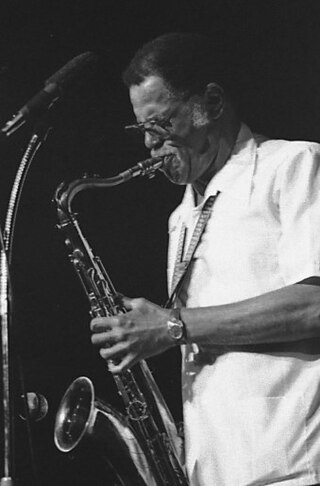
Dexter Gordon was an American jazz tenor saxophonist, composer, and bandleader. He was among the most influential early bebop musicians. Gordon's height was 6 feet 6 inches (198 cm), so he was also known as "Long Tall Dexter" and "Sophisticated Giant". His studio and performance career spanned more than 40 years.
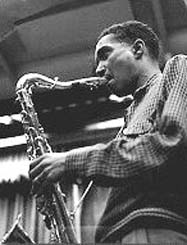
Wardell Gray was an American jazz tenor saxophonist.

Joseph Rudolph "Philly Joe" Jones was an American jazz drummer.

Tadley Ewing Peake Dameron was an American jazz composer, arranger, and pianist.
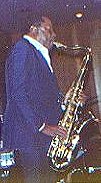
Edward F. Davis, known professionally as Eddie "Lockjaw" Davis, was an American jazz tenor saxophonist. It is unclear how he acquired the moniker "Lockjaw" : it is either said that it came from the title of a tune or from his way of biting hard on the saxophone mouthpiece. Other theories have been put forward.
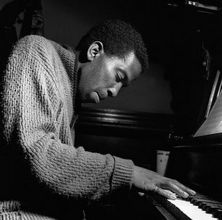
Conrad Yeatis "Sonny" Clark was an American jazz pianist and composer who mainly worked in the hard bop idiom.

Arthur Stewart Farmer was an American jazz trumpeter and flugelhorn player. He also played flumpet, a trumpet–flugelhorn combination especially designed for him. He and his identical twin brother, double bassist Addison Farmer, started playing professionally while at high school in Los Angeles. Art gained greater attention after the release of a recording of his composition "Farmer's Market" in 1952. He subsequently moved from Los Angeles to New York, where he performed and recorded with musicians such as Horace Silver, Sonny Rollins, and Gigi Gryce and became known principally as a bebop player.

Elvin Ray Jones was an American jazz drummer of the post-bop era. Most famously a member of John Coltrane's quartet, with whom he recorded from late 1960 to late 1965, Jones appeared on such albums as My Favorite Things, A Love Supreme, Ascension and Live at Birdland. After 1966, Jones led his own trio, and later larger groups under the name The Elvin Jones Jazz Machine. His brothers Hank and Thad were also celebrated jazz musicians with whom he occasionally recorded. Elvin was inducted into the Modern Drummer Hall of Fame in 1995. In his The History of Jazz, jazz historian and critic Ted Gioia calls Jones "one of the most influential drummers in the history of jazz". He was also ranked at Number 23 on Rolling Stone magazine's "100 Greatest Drummers of All Time".

Park Frederick "Pepper" Adams III was an American jazz baritone saxophonist and composer. He composed 42 pieces, was the leader on eighteen albums spanning 28 years, and participated in 600 sessions as a sideman. He worked with an array of musicians, and had especially fruitful collaborations with trumpeter Donald Byrd and as a member of the Thad Jones/Mel Lewis Big Band.
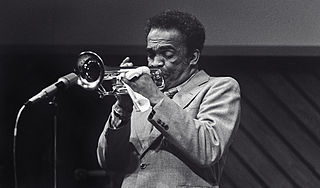
Howard McGhee was one of the first American bebop jazz trumpeters, with Dizzy Gillespie, Fats Navarro and Idrees Sulieman. He was known for his fast fingering and high notes. He had an influence on younger bebop trumpeters such as Fats Navarro.

Frank Benjamin Foster III was an American tenor and soprano saxophonist, flautist, arranger, and composer. Foster collaborated frequently with Count Basie and worked as a bandleader from the early 1950s. In 1998, Howard University awarded Frank Foster with the Benny Golson Jazz Master Award.

Frank Morgan was a jazz saxophonist with a career spanning more than 50 years. He mainly played alto saxophone but also played soprano saxophone. He was known as a Charlie Parker successor who primarily played bebop and ballads.
William Melvin Mitchell was an American jazz tenor saxophonist.
Art Mardigian, better known as Art Mardigan, was an American jazz drummer.
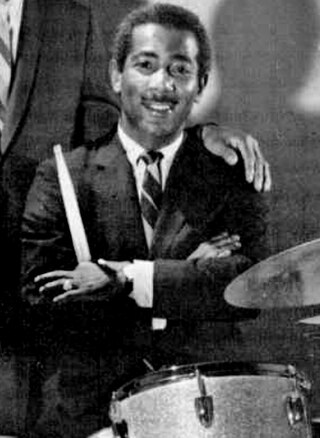
Oliver Jackson, also known as Bops Junior, was an American jazz drummer.
Terry Pollard was an American jazz pianist and vibraphonist active in the Detroit jazz scene of the 1940s and 1950s. She has been described as a "major player who was inexplicably overlooked."
Isaac Day Jr., better known as Ike Day, was a Chicago-based hard bop and bebop jazz drummer.
Tate Houston was a Detroit-based American baritone and tenor saxophonist.
Ali Muhammad Jackson, also known as Ali Jackson, was a jazz bassist, composer, ethnomusicologist, actor, poet and artist.
Alvin "AJ" Jackson was a jazz bassist.













